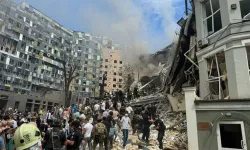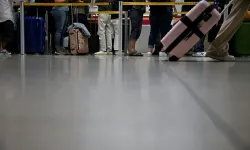Argentina's new government has told the organizers of a protest against announced austerity measures that they will have to cover security costs.
A government spokesperson said the security costs amounted to 60 million pesos ($75,000) and that "the bill will be sent to social movements."
This week, thousands took to the streets of the capital Buenos Aires to protest against the economic policies of new President Javier Milei.
Milei announced plans for what he called "economic shock therapy", including cuts to public services.
More than 10 civil society organizations will reportedly have to pay for security costs, including the "average cost of working hours" and the gasoline consumption of vehicles during the protests, for which large numbers of police were deployed.
Government spokesman Manuel Adorni said that these groups would "take responsibility for costs that should not be borne by citizens."
Organizers had criticized the heavy security measures as an attempt at provocation.
"It reminds me of the dictatorship of the 1970s and 1980s," Eduardo Belliboni, leader of the protest group Polo Obrero, said of the security intervention.
President Milei, who took office less than two weeks ago, had said he would take tough measures against groups trying to block his plans with protests.
Milei's government has announced economic policies that include the privatization of state-owned companies as well as deep cuts in public spending, such as reducing fuel and transport subsidies.
Milei last week weakened the value of the peso currency by more than 50 percent against the US dollar.
The International Monetary Fund (IMF), to which Argentina owes $44 billion, called the measures "bold" and said they would help create the necessary environment for private sector growth.
Argentina has been struggling with inflation, which has hovered around 150 percent in the last year. In a country where 40 percent of the population lives below the poverty line, low cash reserves and high government debt are among the main problems.













